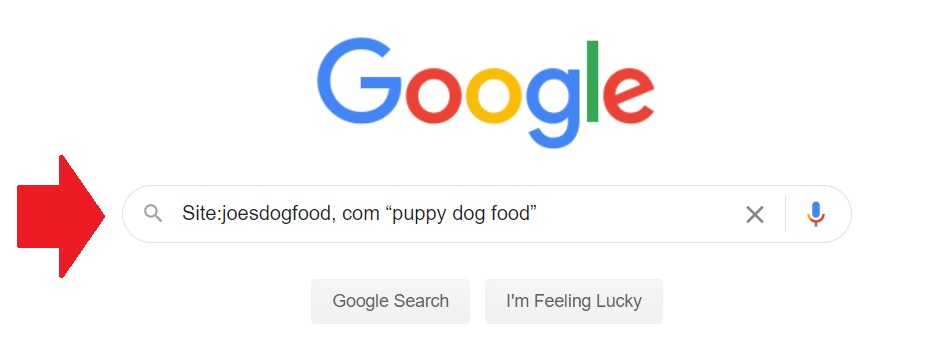Have you ever tried to rank in Google for a specific keyword and realized that your website is ranking for the keyword, but is the wrong URL ranking?

It is always nice when one of your keywords climbs in the SEPRS, but it can be a pain if it is the wrong URL.
An example could be a money keyword where you want a product URL to rank, but instead, you find a help article that outranks your product page.
Reasons why a wrong URL are outranking your primary content
The first thing you can start to examine is the amount of text on the URL that is ranking and how that text is structured compared to your product page.
Example: If you have a product page with 200 words, and a help page article with 1200 words and questions and answers, that might very well be the reason why.
The next step is to examine how you use your keyword.
Compare both the URL´s and look for the following use of the keyword:
- Is the keyword used in the URL?
- Is the keyword used in title and meta description (and how)?
- Is the keyword being used in the first paragraph?
- How is the keyword being used during the rest of the content?
Internal and external links
The next step is to look for any internal links pointing to the “wrong URL.”
- Do you have navigational links with the keyword as anchor text pointing to the wrong URL?
- Do you have links on your money URL (the one you want to rank) that has a link to the wrong URL?
- If you compare the two URLs, which one has external links?
How to fix wrong rankings
If you have examined the questions above, it is time to dig a bit deeper. You need to figure out exactly how Google looks at your site for the keyword you want to rank.
Go to Google.com com and type in a site operator command in the search field, don’t worry it is pretty straightforward.
A site operator is a search query where you only search on your website (domain) for a specific keyword or keyphrase.
So let’s pretend you have a website/domain called joesdogfood.com, and you want to examine which URL Google considers most relevant for the keyword “puppy dog food.”
In this case, you will have to enter the following in Google:
Site:joesdogfood, com “puppy dog food”

Using this command, you ask Google to only search on joesdogfood.com for the term “puppy dog food.”
Google will now list all the URLs that rank for “puppy dog food.”
Let us pretend that the URL Google ranks as a number three was supposed to be ranked as number one. You need to fix it and help Google understand that.
The battle plan: Text and internal links
If you have already spotted that you need to adjust your keyword’s use, that is the first way.
Usually, it is not a good idea to change established URLs, so I would advise you to start fixing the title and the meta description.
The next step is to make sure to use the keyword in the first paragraph and compare it with the competing URL (the wrong URL that ranks for your keyword) if some additional text tweaks are necessary.
Fixing the internal links
The next step is to fix your internal links. Think as an internal link as a road sign – the more roadsigns Googles sees pointing at a specific URL, the more valid that route seems to Google.
Make sure you have no navigational links pointing to the wrong URL, and if they do, make sure to change them to the right URL.
The next steps are pretty easy to carry out:
- Go to the URL that is currently ranking nr. One for “puppy dog food” and link with the anchor text “puppy dog food” and point it to the URL you want to rank.
- Check the other results in Google that ranks for “puppy dog food” and do the same with them – make an anchor link with “puppy dog food” and point them to the right URL
- Make sure that there are no links on the URL you are trying to rank, that points to the wrong URL
That’s it. Hopefully, after next time, Google has crawled your website that the rankings would shift, and you now see the URL you want to rank has taken the number one position.
Additional thoughts about ranking content
There might be times when you simply discover that content starts to rank for keywords you have not yet targeted.
Again it might be a help related article that shows up for a keyword you consider highly commercial.
In those cases, you can create a new URL and make optimized content for that particular keyword. Then you follow the same procedure as described above using internal links and anchor text to point Google in the right direction.
PRO TIP: Use Google Search Console
Trying to change Google rankings usually not happens right of the bat. You need to wait until Google has recrawled your site.
However, you can sometimes be lucky and speed up the crawling process by using Google Search Console.
Simply login to Google Search Console and go to “URL inspection.” Here you type in and fetch the URLs where you have changed your links.
Often it would result in a recrawl and reindexing of your content.
